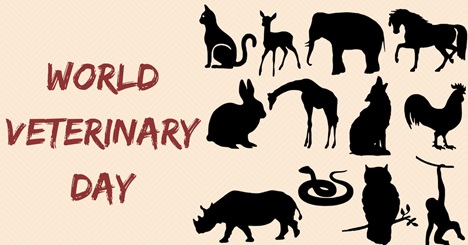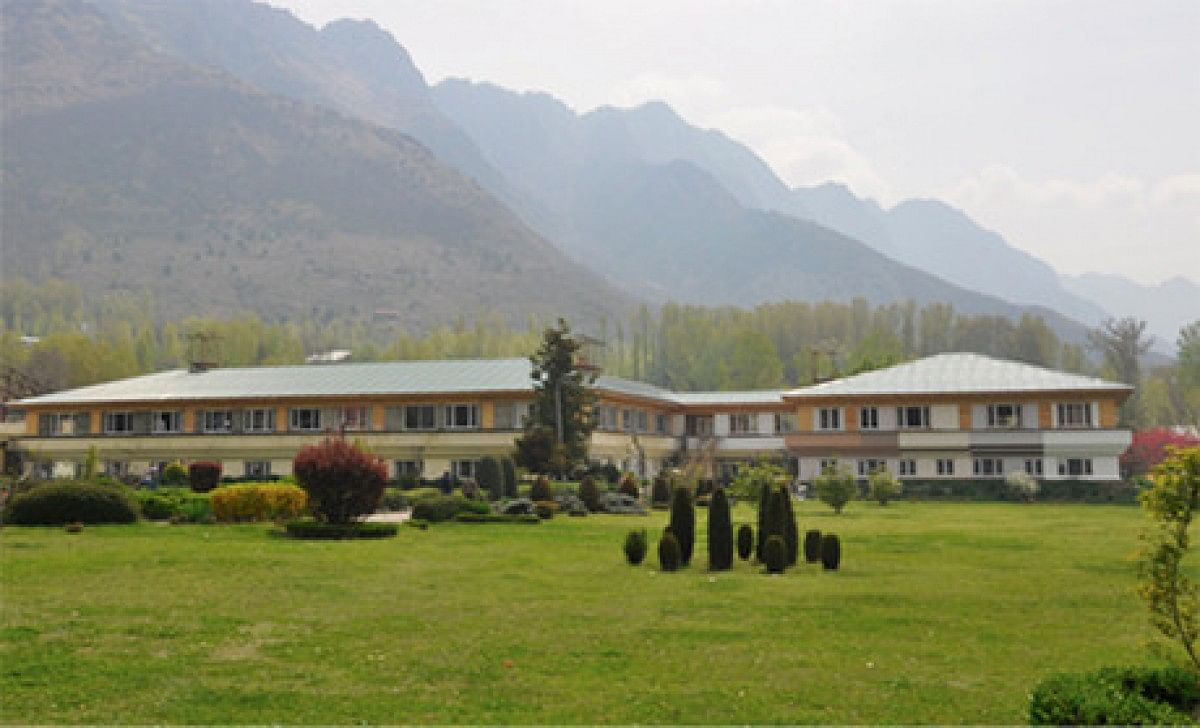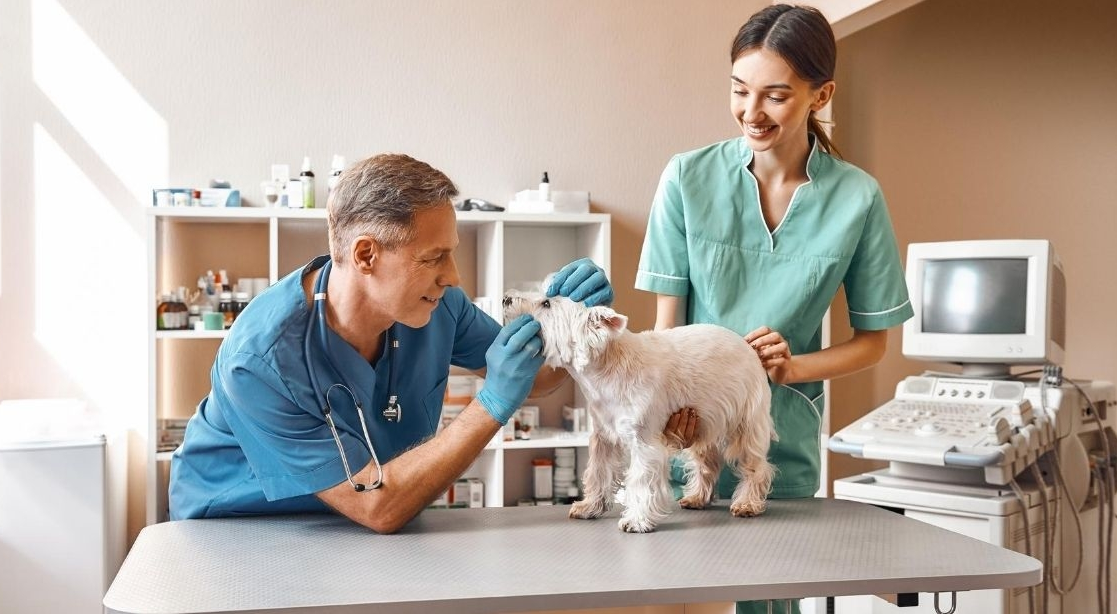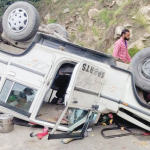Veterinarian in common parlance means an Animal Doctor. This noblest of all noble acts of healing a sick animal constitutes a very small part of a Veterinarians Job Profile. Will Rogers has rightly said, “The best doctor in the world is a Veterinarian. He can’t ask his patients what is the matter – he’s got to just know.”A Veterinarian is not only the guardian of animal health but human health as well. “One Health Concept” is dedicated to improving the lives of all species – human and animal – through the integration of Human Medicine, Veterinary Medicine and Environmental Science. It seeks to promote, improve, and defend the health and well-being of all species by enhancing cooperation and collaboration between Physicians, Veterinarians, other scientific health and environmental professionals and by promoting strengths in leadership and management to achieve these goals. Veterinarian as a farm manager manages dairy, sheep and poultry farms to produce milk, meat and egg for nutritional security, a step ahead of food security. As an animal breeder he works towards improvement of animal productivity, as a nutritionist he devises optimum feeding regimen for better productivity and as food technologist he looks for ways and means to enhance the shelf life of animal products and their value addition.
Veterinary and Animal Science Education, Research and Training
Veterinary and Animal Science Education and Research presently falls under the Ministry of Agriculture. Indian Council of Agriculture Research (ICAR) has nationwide network of Deemed Universities, Directorates, Project Directorates, Research Institutes, National Research Centers, National Bearuex, Network Projects and All India Co-ordinated Research Projects dedicated to research and education in fields of Agriculture and allied sectors. Out of the vast network a few institutes are dedicated exclusively to Animal Sciences. State Agriculture Universities invariably have Veterinary and Animal Science Faculties/ Colleges taking care of Undergraduate and Postgraduate Veterinary education. Many states have separate Veterinary Universities with Faculties/Colleges of Veterinary Sciences, Fisheries, Dairy Technology etc. Southern state of Tamil Nadu has established a network of extension centers on lines of Krishi Vigyan Kendras (KVKs) linked to Veterinary University known as Veterinary University Training and Research Centres (VUTRCs) and state of Karnataka has established Animal Science Polytechniques to create much needed para-veterinary manpower. A statutory body called Veterinary Council of India (VCI) has been established that presently regulates undergraduate teaching, while post-graduate education, research and extension continue to be regulated by ICAR. Veterinary and Animal Science Education in State of Jammu and Kashmir is taken care of by two Faculties of Veterinary and Animal Sciences, one each in Sher-e-Kashmir University of Agricultural Sciences and Technology Kashmir and Jammu (SKUAST-K and SKUAST-J). Besides BVSc and AH degree programme Veterinary and Animal Husbandry Faculties offer Postgraduate and Doctoral Degree programmes in as many as 18 disciplines.
A rigorous five and a half years undergraduate programme during which a student goes through a wide range of subjects like: Anatomy, Histology, Embryology, Physiology, Climatology, Biochemistry, Biotechnology, Pharmacology, Toxicology, Pathology, Microbiology, Immunology, Parasitology, Public Health and Food Safety, Livestock Production and Management, Poultry Science, Wild life Science, Fodder Production and Grassland Management, Animal Nutrition, Feed Technology, Animal Genetics and Breeding, Medicine, Surgery, Radiology, Animal Reproduction, Gynecology and Obstetrics Extension Education, Veterinary Medical Ethics, Animal Products Technology followed by a rigorous Clinical and Farm management practice leads to the award of Bachelors Degree in Veterinary Sciences and Animal Husbandry (B. V. Sc& A. H). As diverse are the subjects so are the animal species about which Veterinary student is supposed to study. These include Cattle, Buffalo, Equines, Swine, Sheep, Goat, Rabbit, Laboratory Animals, Canines, Felines and Avians like Chicken, Duck, Turkey, Guinea fowl etc. to name a few.
Veterinarians in Service of Society
A Veterinarian serves society in a wide variety of ways:
Government Veterinary and Animal Husbandry Services: In Departments of Animal and Sheep Husbandry a Veterinary Assistant Surgeon has multifarious responsibilities including, Animal health care, Disease diagnosis and surveillance, Epidemiology, Dairy, Sheep, Goat and Poultry Development. Genetic improvement of livestock, Production of Biologicals, Maintenance of semen and germplasm banks and hatcheries, Feed formulation, compounding and quality control, Livestock and Poultry Farm Management, and providing Vetero-legal opinion whenever required
Research teaching and education: Post graduate Veterinarians take up Research, Teaching and Extension assignments in State Agricultural/Veterinary Universities, KVKs, Research Institutes under Agricultural Research System and in Departments of Science and Technology, Department of Biotechnology, Defence Research Development Organization, Council for Scientific and Industrial Research etc.
Defence Veterinary Services: Indian Army has Remount Veterinary Corps that inducts Veterinarians to take care of number of Military Dairy farms, Equine studs and other Livestock farms and Canine squads. Besides they are involved in meat and milk inspection at various military establishments. For similar assignments paramilitary forces like BSF, ITBF, and CRPF etc also induct Veterinarians in their ranks
Banking and Insurance: Public and private sector banks and Insurance companies induct Veterinarians for looking after Cattle/Animal Husbandry finance schemes and livestock insurance sectors respectively
Private Practice and Consultation: A Veterinarian as a consultant to Dairy Sheep and Poultry enterprises contributes immensely in increasing the availability of animal products.
Veterinarians in Wild life Conservation: Veterinarians contribute to Wildlife conservation in capacity of Wildlife Veterinarians in National Parks / Sanctuaries and Zoos. In event of Wild Animal- Human Conflict the Veterinarians are called upon to control the strayed Wild animal in order to ensure its safe return to natural habitat.
Veterinarians as Guardians of human health: Veterinarians act as guardians of human health in capacity of Livestock Inspectors in municipalities and local bodies, Meat inspectors at Slaughter houses, Milk and Milk product inspectors in Dairy Plants. In event of outbreak of Zoonotic disease Veterinarians are called upon to use their expertise in controlling the disease.
Veterinarians as administrators: Being accustomed to rigorous study schedule and hard work Veterinarians find it easy to crack Civil services Examinations like IAS, IFS, State Administrative Services etc. and many Veterinarians have in recent years made it to coveted positions in administration.
Besides there are number of other fields where services of Veterinarians are required
- Veterinary Pharmaceuticals and Biologicals manufacturing and distribution.
- Animal and Poultry feed formulation, manufacture, quality control and marketing.
- Animal and Poultry farm equipment manufacture maintenance, quality control and marketing.
- Dairy Cattle, Sheep, Goat, Poultry farm management.
- Hatchery and Breeder Farm Management.
- Livestock Business Project Formulation, Budgeting and Planning.
- Animal Products Technology, Value Addition and Product development.
- Animal Experimentation during drug development and other bio-medical research.
World Veterinary Day
On last Saturday of April every year the global Veterinary community comes together to celebrate World Veterinary Day. Created by the World Organization for Animal Health (OIE) and the World Veterinary Association (WVA), World Veterinary Day first celebrated in year 2001 is meant to raise public awareness about the important roles veterinarians undertake. The celebrations are cantered on focusing attention to the crucial role veterinarians play in the development of more sustainable Animal Husbandry practices, which improve not only the health of animals, but also the health and well-being of people and the environment. By implementing a One Health Approach, Veterinarians are working together with other health professionals to improve and develop new production systems that are also respectful of animal welfare and the environment,” By doing so, veterinarians are contributing to the achievement of the United Nations Sustainable Development Goals to reduce poverty and ensure zero hunger, good health, and economic growth.” Each year, WVA declares a theme for World Veterinary Day.
This year the theme for World Veterinary Day is Promoting Diversity, Equity and Inclusiveness in Veterinary Profession. Along with the global Veterinarian Community, the Veterinarians at SKUAST of Kashmir comprising Scientists, Teachers, Extension workers, Students and Research Scholars celebrate World Veterinary Day with traditional enthusiasm at Faculty of Veterinary Sciences and Animal Husbandry, SKUAST-Kashmir, Shuhama, Alusteng. On 29th of April 2023 the last Saturday of April this year SKUAST-K Veterinarians shall converge at the Faculty Lawns, where Chief Guest, Honble Vice Chancellor, SKUAST-K shall unfurl the World Veterinary Association Flag and unveil the new issue of Vets’ Vision. This would be followed by a Veterinary Day Rally to Multi-speciality Veterinary Clinics, inauguration of Animal Clinical Camp, Felicitation of achievers, theme lecture by Organizing Secretary and scores of other programmes. The visit of School Children and retired Veterinarian shall also add colour to celebrations.
( The Author is a Veterinarian serving at SKUAST-K as Associate Director Research and Officer on Special Duty to Vice Chancellor The views expressed in the write-up are the views of the author and need not represent the views of the Institution. He can be contacted at [email protected])








